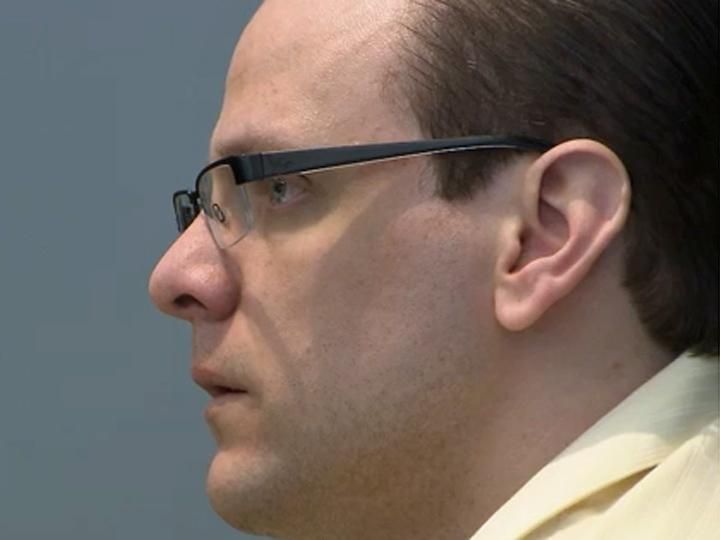Abaroa defense asks judge to dismiss murder case

The Superior Court judge presiding over the trial of a man accused of killing his wife eight years ago denied a motion Monday to dismiss the case after defense attorneys said critical evidence wasn't turned over to them until last week.
Raven Abaroa, 33, is charged with first-degree murder in the April 26, 2005, death of Janet Abaroa, 25, who was found stabbed to death in their Durham home.
The evidence at the center of the defense's request has to do with emails and the Internet search history found on the hard drive of Janet Abaroa's work computer, which was discovered Thursday morning in a locked cabinet at the Durham Police Department.
Amos Tyndall told Superior Court Judge Orlando Hudson that fragments of messages recovered from the device revealed that Janet Abaroa was having daily contact with a former boyfriend in the weeks before her death and that the two had talked over email messages – some flirtatious, some sexual in nature – about meeting in either Norfolk, Va., or Richmond, Va.
The emails were within weeks before she died – the last one dated April 7, 2005 – and Tyndall said that the information "has essentially turned this case on its head."
Prosecutors have painted his client as an unfaithful and verbally abusive husband who kept control of her finances, and witnesses have testified that Janet Abaroa feared her husband and tried to always please him.
The motion states that the messages contradict witnesses' testimony that Janet Abaroa "was terrified of Mr. Abaroa and was subservient to him to the point of having no independent will."
"These emails turn that image on its head," Tyndall said. "Withholding those emails has allowed the state, through its witnesses, to present a very dishonest portrait of Mrs. Abaroa, a dishonest portrait of my client and a dishonest portrait of their relationship."
Tyndall asked for the court to strike the state's evidence and dismiss the case, saying he had asked for the hard drive before trial and that the messages could have changed the defense strategy, including how witnesses were questioned and how the jury of seven men and five women was seated.
"Getting this information at about the time that the state is ready to rest its case and has presented an image of my client for three weeks – frankly that is going to be hard to undo," Tyndall said. "I think the state would be hard pressed to present the same image with the information."
The state, however, contended that the emails weren't withheld intentionally and that they wouldn't have changed how the prosecution presented its case.
Hudson refused to grant the motion, as well as a subsequent motion to declare a mistrial, finding that there was no evidence of discovery violations.
Prosecutors rested their case Monday afternoon after 14 days of testimony and 66 witnesses, including police detectives, crime scene investigators, Janet and Raven Abaroa's friends, family and co-workers, an ophthalmologist and members of the couple's church.
Jurors spent several hours reviewing dozens of pieces of evidence, including shoes, a cellphone and a knife that Raven Abaroa told detectives they overlooked and that he found years later in a box of belongings.
Raven Abaroa has denied any involvement in his wife's death, having told investigators he was at a soccer game and returned home that night to find her on the floor in their home office.
Tyndall told jurors during opening statements on April 29 that although Raven Abaroa might not have been an ideal husband, there's no physical evidence to suggest that he killed Janet Abaroa but that there was evidence that might have cleared him.
Among that evidence is an unknown fingerprint on a closet door and unknown DNA found in a blood stain on a side door leading to the driveway of the couple's home.
Defense attorneys are expected to call their first witness Tuesday morning.
If convicted of first-degree murder, Raven Abaroa faces life in prison without the possibility of parole.











